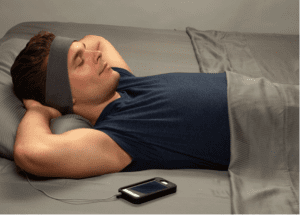
Sleep Tourism
In our fast-paced, modern world, where stress and technology often interfere with a good night’s sleep, an emerging trend known as sleep tourism is gaining popularity. Skyscanner’s recent sleep survey showed that over a third of people are actively seeking out holidays or retreats that prioritise the art of rest and rejuvenation. Among the pioneers in this space is the Pan Pacific Hotel in London offering a unique ‘Sleep Program’ designed to help guests reset their sleep patterns and enhance overall well-being. So naturally, being an overworked sleep specialist… I asked if I could go and check it out and reset myself!
Pan Pacific Hotel’s Sleep Programme
The Pan Pacific Hotel’s Sleep Program is a testament to the growing demand for accommodations that go beyond traditional amenities. It focuses on various elements that contribute to a restful night, including room design, ambient temperature, and curated relaxation treatments. While the hotel’s wellbeing lead acknowledges that a short-term stay may not completely solve chronic sleep issues (sleep disorders persisting for over three months), it offers a promising avenue for those seeking a brief respite from the daily grind.
One of the key components of the Sleep Program is the thoughtful design of the rooms. The hotel has curated an environment conducive to sleep, with carefully chosen colours, textures, and lighting (and the lack of lighting!) that promote relaxation. Additionally, the ambient temperature of the room is meticulously controlled to provide optimal conditions for a good night’s rest. These considerations reflect a broader movement within the hospitality industry to prioritise sleep quality as a fundamental aspect of the guest experience – in an evidence-based way.
Holistic Approach
Beyond the physical aspects of the sleep program, the Pan Pacific Hotel also offers specialised relaxation treatments. These treatments aim to alleviate stress and tension, providing guests with a holistic approach to inducing at least one good night’s rest. The integration of wellness practices into the sleep experience reflects a broader trend in the tourism industry towards a more comprehensive focus on mental and physical well-being.
It’s important to note, however, that sleep tourism is not a cure for chronic sleep disorders or long-standing sleep problems. I would caution that sustainable improvements in sleep require a more comprehensive approach, often involving lifestyle changes, medical interventions, or behavioural sleep treatments which take weeks, not days, to work for underlying issues. Sleep tourism, such as the offerings at the Pan Pacific Hotel, should be viewed as a valuable tool for short-term rejuvenation rather than a solution for persistent sleep challenges.
In a society where burnout and exhaustion are prevalent, the concept of sleep tourism provides an innovative and timely solution. Whether it’s a stay at a hotel offering a dedicated sleep program, a private holiday letting designed with sleep in mind, or a specialised sleep retreat, these options offer individuals a chance to recharge and reset amidst the demands of their daily lives.
However, as the sleep economy continues to expand, consumers must exercise caution. Some offerings may present themselves as miracle solutions with hefty price tags but lack evidence-based
efficacy. Discerning travellers should be mindful of unevidenced sleep hacks and carefully choose experiences that prioritise science-based approaches to sleep improvement.
In summary, sleep tourism is an exciting development in the travel and wellness industries, providing individuals with the opportunity to prioritise rest and rejuvenation. While it may not be a cure for chronic sleep issues, it serves as a valuable tool for those seeking a temporary escape from the hustle and bustle of everyday life. As the trend continues to grow, consumers should remain vigilant, choosing sleep experiences that are rooted in evidence and focused on genuine wellbeing.
So thank you, Pan Pacific, and team, for giving me a wonderful work-free and deeply restful sleep!
Remember Sleepyheads – if you want some support for chronic sleep issues, contact now for treatment. Alternatively, if you want to fix sleep yourself for good, why not do my DIY sleep course online?


